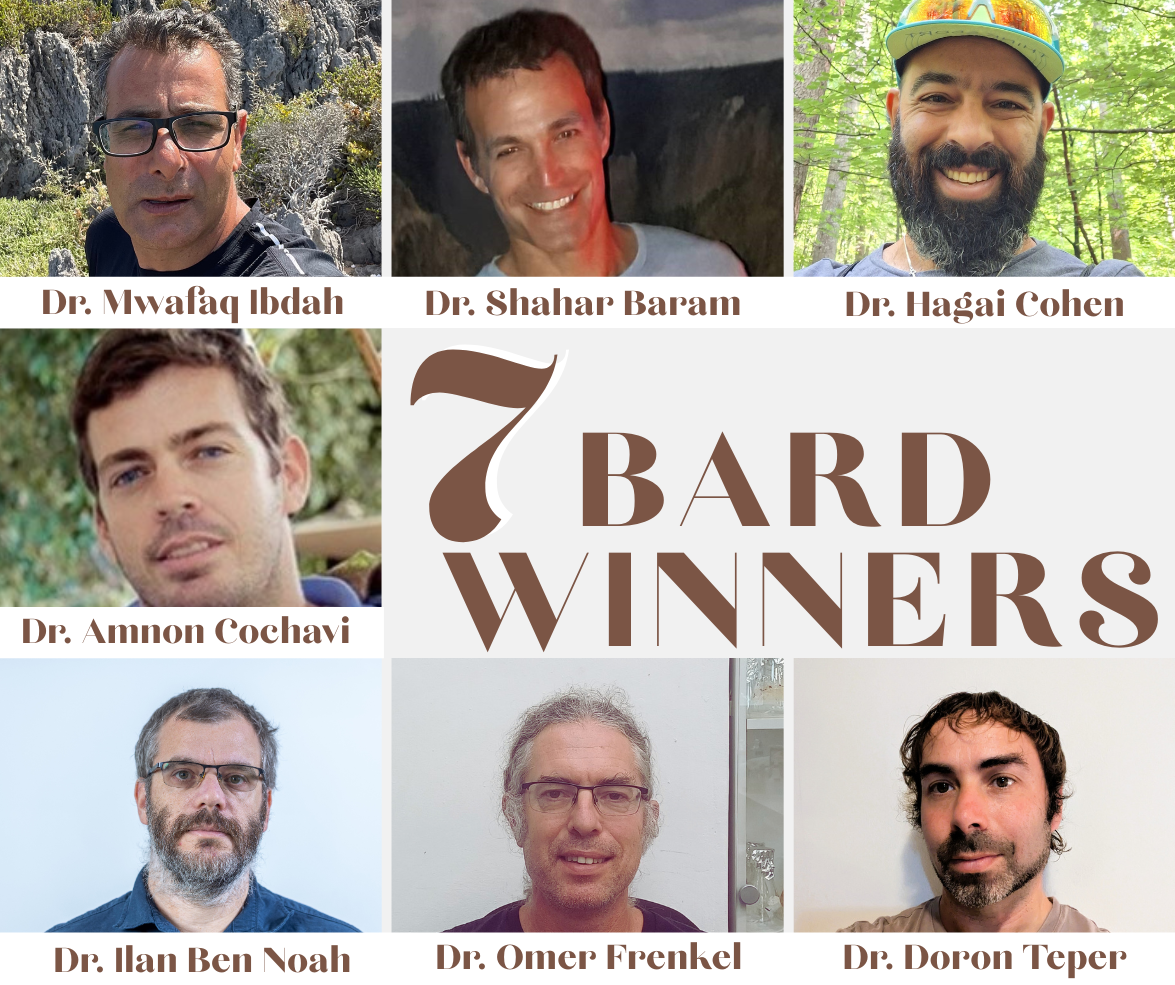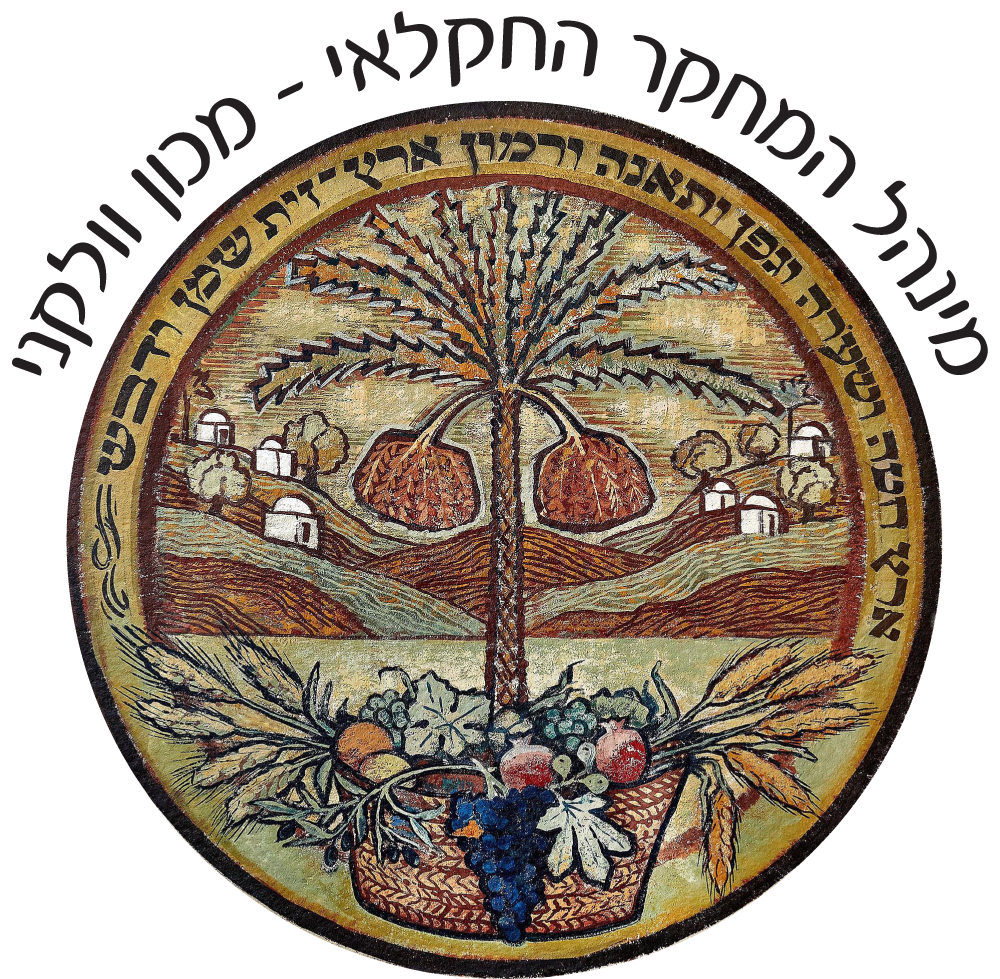7 BARD Winners
Dr. Doron Teper‘s research project – “The plant pathogenic bacterium Clavibacter michiganensis, which causes bacterial canker in tomato, utilizes secreted proteases to colonize and infect host plants. In the current study, we aim to identify the host targets of these proteases, understand their mode of action, and use this information to engineer host resistance against bacterial canker”.
Dr. Ilan Ben Noah‘s research project – “Optimization of irrigation scheduling (dosing and timing) can significantly improve the quantity, quality, and water productivity of many crops. This research leverages real-time soil sensors’ data and weather conditions with a mechanistic continuum approach model to adjust irrigation schedules dynamically. In this, a multi-objective optimization control framework will suggest irrigation scheduling balancing water availability, root respiratory demands, and salinity effects”.
Dr. Amnon Cochavi‘s research project – “The watermelon plant, originally from arid regions of Africa, has lost many of its drought-tolerant traits during domestication. In the face of climate change, reintroducing these traits is essential to ensure the crop’s continued cultivation. In this study, we aim to restore drought resilience using physiological and genetic tools—without compromising fruit yield”.

Dr. Omer Frenkel‘s research project – “The soil microbiome harbors a vast array of secondary metabolites with potential antifungal properties, yet traditional methods often lead to the rediscovery of known compounds, leaving much of this microbial chemical diversity—particularly from the vast majority of unculturable microbes—largely unexplored. A BARD-Pioneer-funded research proposal, submitted by Dr. Omer Frenkel and Prof. Sean Brady of Rockefeller University, in collaboration with Dr. Eddie Cytryn, Dr. Dror Minz, and Dr. Judith Cohen, aims to overcome this limitation by mining soil microbiomes and suppressive substrates for novel antifungal compounds. In the first stage, the project will employ advanced approaches, including metagenomic mining of microbial populations, heterologous expression of biosynthetic gene clusters, and direct synthesis via the syn-BNP platform, to generate new bioactive molecules. In the second stage, these compounds will be tested for their efficacy against soilborne fungal pathogens and further analyzed to elucidate their modes of action. This work aspires to deliver sustainable and innovative alternatives to conventional chemical fungicides”.
Dr. Shahar Baram’s research project – focuses on decoupling nitrogen fertilizer (NF) production and its complex distribution systems from fossil fuel dependency. The project aims to develop an innovative approach that integrates on-site, green energy-based NF production with precision application tailored to the plant’s real-time nutritional needs. This technology will equip farmers with advanced tools to optimize nitrogen management, minimizing both over- and under-application, and enhancing nitrogen use efficiency. Ultimately, the research seeks to establish an automated nitrogen management system driven by real-time data on nitrogen concentrations in the plant root zone.
Dr. Mwafaq Ibdah‘s research project – “Plants release volatile organic compounds (VOCs) that facilitate communication and defense responses. In orange carrots, VOCs mediate long-distance signaling from shoots to roots, enhancing pathogen resistance and metabolic changes. This project aims to uncover the mechanisms behind VOC signaling to improve plant defense and sustainable agriculture”.
Dr. Hagai Cohen‘s research project – “In the current BARD project, we aimed at investigating the role of the fruit cuticle by generating genetically modified tomatoes with altered structural, chemical, and nanomechanical properties”.
